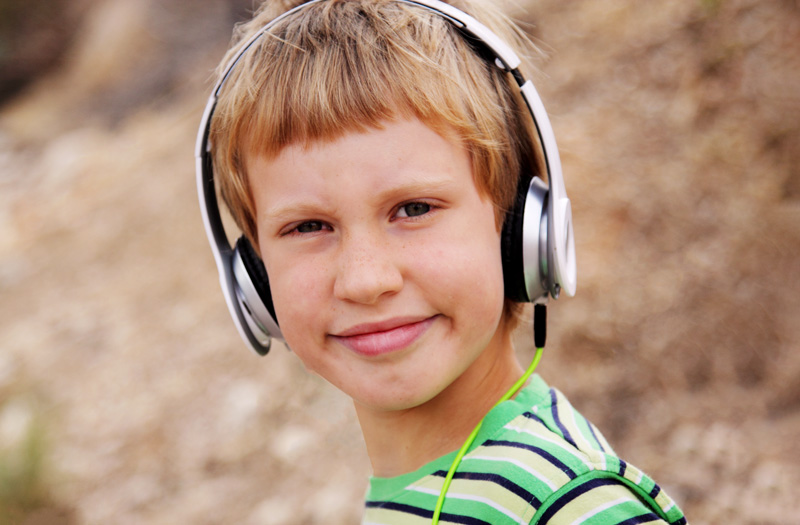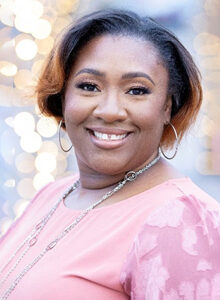My child has big emotional reactions and seems so sensitive to everything. I am always having to reassure my daughter when we go to new places or meet new people. My son wants to make friends so bad, but he has such a hard time knowing how to play with others. My daughter gets upset every time I take her in public restrooms. My child does not care if others play with him; he can play by himself for hours at a time. I don’t know if our child understands what we tell her because she does not talk. These comments and concerns are just some of many that parents and caregivers have shared when we have met for the first time to discuss a possible autism assessment.

Often times, parents and caregivers share with me that their child is displaying “unusual” behaviors and not knowing what the behaviors are stemming from. There are other times when parents and caregivers have expressed being mainly concerned about their child’s communication skills and/or social interactions and not knowing where to begin to help their child with further developing these skill areas. These concerns and behavior descriptions typically lead to us having a discussion around ASD and how to best proceed to address their concerns.
ASD is a developmental condition that is characterized by differences in social communication and interaction, restricted interests, and repetitive behaviors. A variety of behaviors can manifest on the autism spectrum, and each autistic child has a unique set of abilities. Thus, autistic children can look very different in their functional abilities, communication skills, interpersonal relationships, and stereotyped behaviors. ASD is prevalent across the world, and the most recent research shared by the Centers for Disease Control and Prevention (CDC) indicated that as of 2021, ASD was occurring in 1 in 44 children.2 Some autistic children show signs of future challenges within the first few months of their life. In others, behaviors may not appear until 24 months or later. Some autistic children seem to develop typically until between 18 and 24 months old, and then they may stop developing new skills and abilities; other children may lose the skills they once had.3 There are various signs of ASD, which include:
- Avoiding eye contact
- Not responding to his or her name by 12 months old
- Trouble initiating or maintaining conversation or conversations focus on a preferred topic of interest
- Not pointing at objects to show interest by 14 months
- Repeating words or phrases over and over
- Having delayed speech and language skills
- May appear to lack empathy
- May struggle with pretend play
- May prefer to be alone than play with peers
- Can struggle with initiating and maintaining friendships
- May memorize random facts about one topic and/or engage in intense play with one item
- Rigidity about transitions, time, travel, daily routines, feeding, and placement of objects
- Atypical body movements, such as flapping, spinning, body rocking, tense body movements, toe-walking, finger-flicking, and finger twisting/crossing
The Assessment Process
Over the past several years, there has been more attention given to ASD, and parents, caregivers, and professionals are likely paying more attention to possible developmental differences associated with ASD. Therefore, it is important for parents and caregivers to know how to go about obtaining an ASD diagnosis and what to do once a diagnosis is received, as the entire process can be quite overwhelming and confusing and contribute to families feeling lost and alone when they have limited knowledge. As a parent or caregiver, if you suspect that your child may have ASD, then it is best to act as early as possible by talking with your child’s primary care physician or pediatrician to get an autism assessment completed. Once you have obtained a referral for an autism assessment or have sought out an autism specialist on your own, then you want to keep the following in mind as you prepare for the assessment and throughout the duration of the assessment process.
- Prior to attending any appointments, talk with those who have already worked with your child. This may include teachers, therapists, or medical specialists. Have these individuals write down their observations or prepare a letter for you to provide at the time of the assessment.1
- Keep your own log of your observations of your child. You can use this log as a reference at the time of the initial assessment appointment when asked to share your concerns and reasons for seeking out the ASD assessment.1
- Ask someone from your support system to attend assessment appointments with you and your child. It can be helpful to have an additional person take notes while you are talking with the autism specialist and who can help you keep track of decisions made.
- While waiting for an ASD diagnosis, do not wait to obtain services. If your child is younger than 3 years old, go ahead and connect with your local early intervention program. If your child is older than 3 years old, make contact with the early intervention special education department within your local school district.3
Participation in an ASD assessment will either confirm or disconfirm the diagnosis and help you determine what supports and interventions would benefit your child and your family. Your physician would be able to give you a referral to an autism specialist, which can be a child psychologist or developmental pediatrician. Once connected with the autism specialist, be prepared to participate in an interview to provide as much information as possible about your child and family history (e.g., social skills, language and communication, physical health, family dynamics, etc.) and to provide any relevant medical, school, and/or mental health records. You may be directly asked what makes you suspect your child has ASD, so think about this and be prepared to answer as best as possible. The assessment will also address your child’s developmental functioning, cognitive ability, adaptive functioning, and social communication and interaction through direct play observation, classroom observations, and rating scales completed by you and teachers. It is also strongly recommended that you seek a full medical examination, including pediatric neurology, vision, and hearing, to determine if there are any associated medical conditions that may be contributing to your child’s developmental differences.
Once the evaluation is complete, you will receive a written report with results of the evaluation. This report may tell you that your child has ASD, where your child falls on the autism spectrum, and include specific recommendations for next steps. The report can also say that your child does not have ASD or that there is not enough information at the time to give an ASD diagnosis. With the latter case, another evaluation may be needed when your child is older.4 If the autism specialist does not believe your child has ASD, but you still have concerns, it is okay to ask for a second opinion. In such circumstances, never let your concerns get dismissed.
Once your child has received an ASD diagnosis, schedule a follow up appointment with the autism specialist to discuss the results of the assessment and to ask any questions you have about the written report you receive. You also should read and learn as much as you can about therapies and supports to address your child’s specific needs, and be sure to build your support network, including participation in autism parent support groups and forums and seeking out family support to help you make sense of all of the information you have received.4
Dr. April L. Coleman is a Georgia licensed psychologist and the clinical training site coordinator at the Georgia Autism Center in Peachtree Corners, Georgia. She is also a published author and speaker. She has been working in the mental health field for 16 years and has been in private practice for the past 9 years. Dr. Coleman specializes in the comprehensive assessment of Autism Spectrum Disorder (ASD), specific learning differences, Attention-Deficit/Hyperactivity Disorder (ADHD), and anxiety. She works with individuals aged 12 months through young adulthood. Dr. Coleman speaks at various school and agency events in which she educates parents and caregivers about the common signs of ADHD, ASD, specific learning differences, and anxiety; when it is time to seek support from a qualified professional for an assessment; and what next steps should be once the assessment process is complete and diagnoses are shared.
Dr. Coleman enjoys working with families from diverse backgrounds and circumstances. She has worked in a variety of settings, including schools, community mental health clinics, community service boards, child advocacy centers, specialized treatment centers, social service agencies, and private practice. She has also collaborated with institutions to conduct assessments within residential treatment facilities, within juvenile detention centers, within foster homes and group homes, and for the Georgia Division of Family and Children Services. With her years of experience, Dr. Coleman’s clinical work extends beyond the assessment process and also involves providing support, guidance, and consultation to parents and caregivers post diagnosis to ensure that the families’ needs are met as best as possible.
Dr. Coleman is a former clinical psychology graduate level professor of five years in which she taught child and adolescent psychopathology and life span development, and she led a diagnostic assessment seminar for students within the child and family curriculum. She also is the current practicum site supervisor for graduate level students at Mercer University and the University of Georgia. Dr. Coleman is a graduate of Georgia State University and The Georgia School of Professional Psychology. She holds a Bachelor of Science degree in Psychology and a Master of Arts and Doctor of Psychology in Clinical Psychology. Dr. Coleman resides in Metro Atlanta with her husband and their 2-year-old daughter.
More information about Dr. Coleman and how to connect with her can be found at www.draprilcoleman.com and www.georgiaautismcenter.com.
Footnotes
- Action for Children. (2022, May 11). What should I do if I think my child has autism? Support for Parents from Action For Children. Retrieved February 7, 2023, from https://parents.actionforchildren.org.uk/additional-needs-disabilities/understanding-additional-needs/autism/
- Centers for Disease Control and Prevention. (2022, March 2). Data & statistics on autism spectrum disorder. Centers for Disease Control and Prevention. Retrieved February 7, 2023, from https://www.cdc.gov/ncbddd/autism/data.html
- Pratt, D. C., Tomlin, D. A., Minshawi, D. N., & Boyce, G. (n.d.). What to do if you suspect your son or daughter might have an autism spectrum disorder. Indiana Resource Center for Autism. Retrieved February 7, 2023, from https://www.iidc.indiana.edu/irca/learn-about-autism/what-to-do-if-you-suspect-your-son-daughter-might-have-an-autism-spectrum-disorder.html
- Signs of autism in children: What to do. Raising Children Network. (2022, October 25). Retrieved February 7, 2023, from https://raisingchildren.net.au/autism/learning-about-autism/assessment-diagnosis/autism-signs-in-children-what-to-do






Thank you your time
I have a nephew with autism. It breaks my heart to see him struggle to get any type of work.
My sister has fought all her life pushing him to fill his goal. He is a college graduate and he is so proud of his accomplishments
It seems that after graduating he came to a dead end. They live in Union. NJ
Will you please give us hope and advice.
Thank you